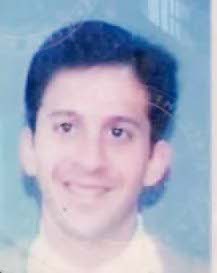If I were 22: Advice from My Dad

Like many sons, my Dad was a tremendous influence on me. A tough, no-nonsense individual who loved me and my brother dearly, he would do anything to help us. My Dad and I share a lot of similarities: he was an Electrical Engineer like me. He started his career in the semiconductor business like me. He was an entrepreneur who founded two companies, and I am an entrepreneur who has founded a company too.
I learned a lot from my Dad. There are two pieces of advice he gave me that have guided me through my career, and I think they'll prove as valuable to you as they still are to me:
- Take your chances when you’re young
- Don’t worry about money, worry about the opportunity, and money will follow
Take your chances when you’re young. It’s such an obvious thing to take chances when you are young. Why? It’s very simple. If you fail or the company fails, you have plenty of time to bounce back. Most people, in the early stages of their careers, don’t have children or a mortgage; the same things that will make it harder to take chances as you enter mid-career. If the chance pays off, you can jumpstart your career and, perhaps, become a very senior executive or even a CEO at a young age.
Don’t worry about money, worry about the opportunity, and money will follow. Let me start with what I am not saying: I am not suggesting you should take a job that doesn’t pay a reasonable wage. I am saying that making money the be-all of your decision making process, especially at the beginning of your career, is a mistake. Why? My Dad believed, as I do, that the difference in pay between almost any early career job is not going to be significant enough to be life-changing. However, the opportunity may be. My first job out of school was at a start-up where I got the chance to do everything from IC design, to board level design, to meeting with customers - infinitely more than I would have at a much larger company. The start-up didn’t win, but the experience is still valuable all these years later.
My Dad taught me a lot, yet we should all build on the lessons our parents teach us, and there are two additional pieces of advice I want to give you from my career experience:
- It’s a very small, very connected world, so don’t burn bridges. Couth is not something that came easily to me when I was younger. I pissed a lot of people off over issues that seemed important at the time, but really weren’t. People have long memories when you piss them off. Learn at an early age to handle yourself with class and grace. It’s amazing who knows who in today’s LinkedIn world. Spend a day in Silicon Valley, and you understand why people say, “it’s a small valley.” It is, and it is likely a “small valley” wherever you work and live these days.
- Network, network, and then network some more. I didn’t think about it until recently, but every job I have ever had has come as the result of my network. From the start-up I joined out of college, to the company I founded, my network was critical. Do you want to start a company one day? Do you dream of raising venture capital? Well, you better have a good network because VCs rarely take meetings based on blind emails. Do you want to move from the technology industry to a career in healthcare? Your network is the key to making that change. The tools available to you today make it really easy to build a strong network. Considering that wherever you end up working, it'll be in a small valley, use those tools – and your personality – to build relationships that will help you fulfill your career goals. Do that, and I'm guessing you'll build some satisfying personal relationships along the way as well.
You're going to face many different career choices. You might join, or stay, at a big company. You might join an up and coming startup. Just make sure you take the job for the right reasons, and once you take it, build positive relationships.
Whatever you do, I wish you great success – in business, but far more so, in life.